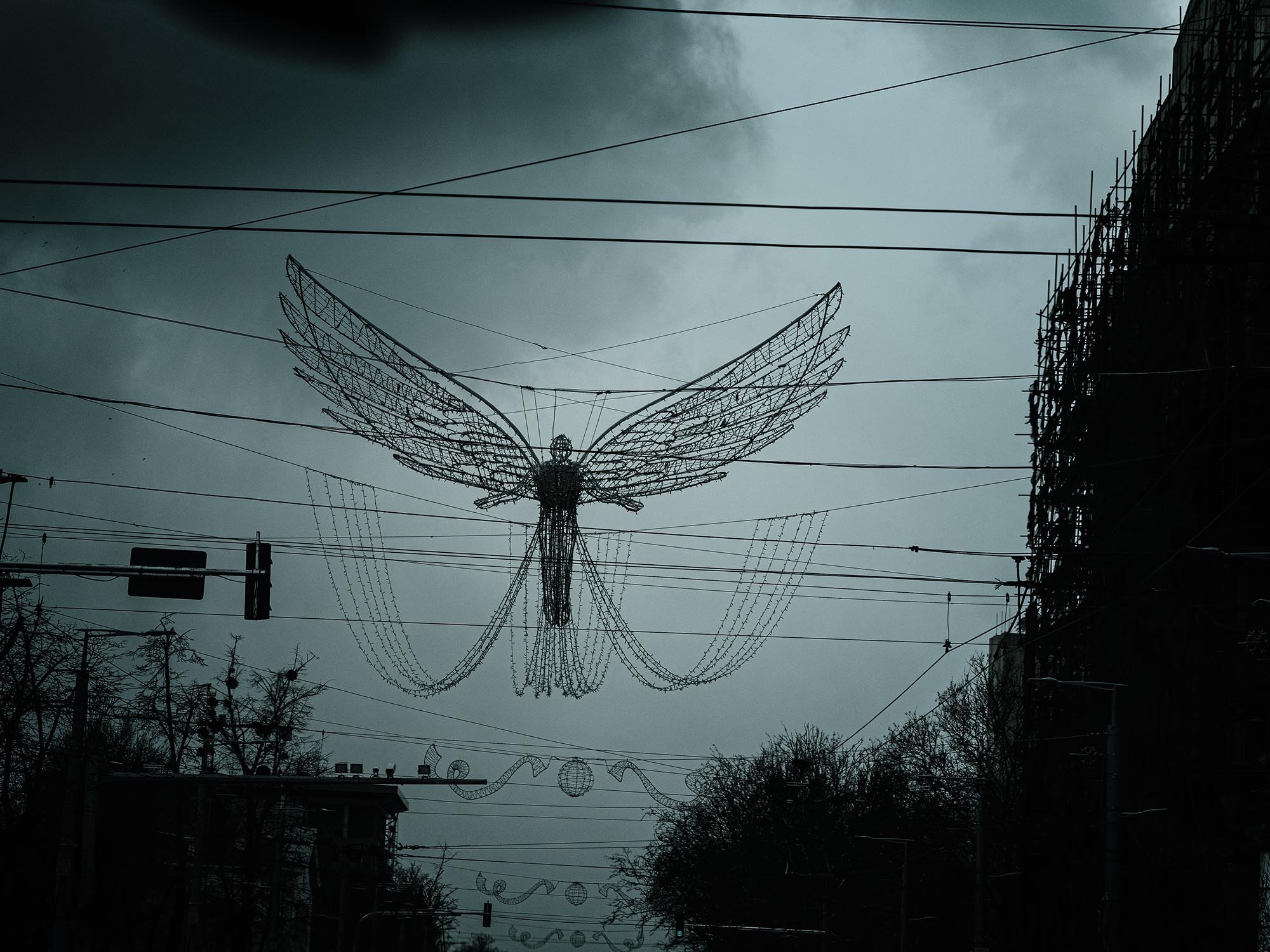On the edge of empire
The war in Ukraine has, in a sudden and unexpected way, upset and revolutionized the international balance in a part of the world where nationalistic tensions have never subsided. Moldova, which is struggling to free itself from the Soviet sphere of influence, thanks to a government that looks further west, not only faces the most serious humanitarian crisis in its history, with tens of thousands of Ukrainian refugees arriving in a few days, but now sees Russia dangerously close to its borders. In particular, the situation in Transnistria is of concern. After the war that led to the separation from Moldova and independence in 92, Transnistria remained a sort of time capsule of the Soviet era, in which, even if the new generations are starting to look to more Western social models, Russian influence and charm are very present. The two banks of the Dniester, the river that represents the border between Moldavia and Pridnestrovia, as Transnistria is called here, represents two different visions of the future. The tension is very high, also due to the Moldovan request to join the European Community, and it is feared that Russia could use Transnistria in the same way it used the Donbass. Odessa is not so far from the center of Tiraspol, and in some parts of the country the border with Ukraine is just a blue sign placed in the middle of the fields, with no checkpoints or guards, a simple and direct route for any Russian troops who wish to open another front of war. For the moment, the most serious crisis facing Moldova is a humanitarian one. Of the more than 1.5 million Ukrainian refugees, 150,000 are in Moldova, one of the poorest countries in Europe. I travelled between Transnistria and Moldova, along the Ukrainian border, where destinies, fears, the past, wars that have not yet ended and wars that have just begun are intertwined.From the collapse of the Soviet Union to the desire to get out of its heavy legacy, a choral tale of an area where borders are as liquid as the rivers that separate nations.

Palanca, Moldova. The border with Ukraine.

Ursoaia, Moldova. Damien and Roman in Ludmmila's house, where they found hospitality after fleeing the war in ukraine. Mindful of the Soviet war of 92 which led to the independence of Transnistria, many Moldovans living in rural villages have decided to host Ukrainian refugees in their homes.

Ursoaia, Moldova. Tatiana, who arrived a few days before her, cries emotionally as she hugs her friend Ira di lei, who has just arrived from Odessa.
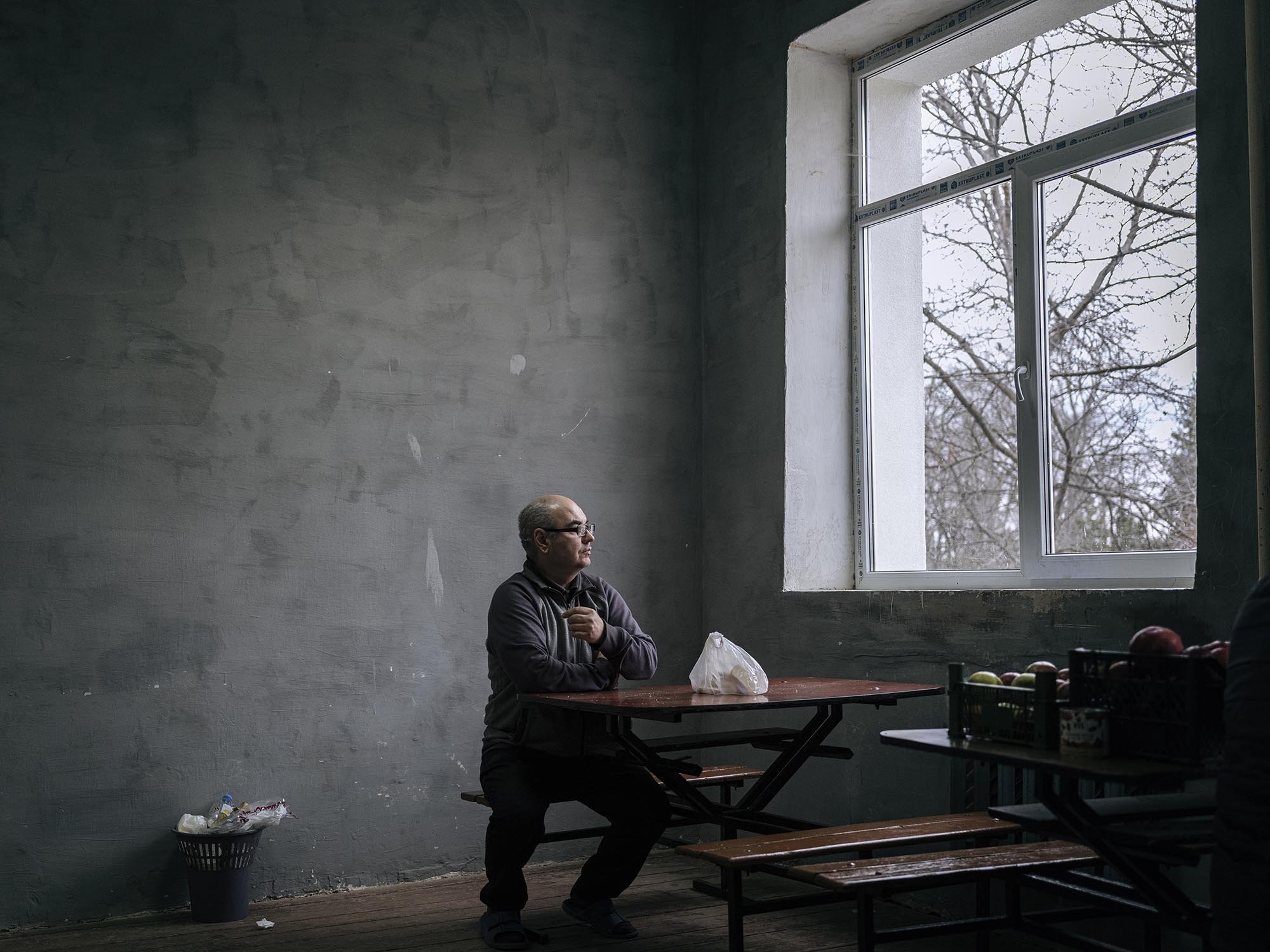
Chisinau, Moldova. Inside the military base Brigade 2 Stefan Cel mare, that now host refugees from Ukraine. Men of fighting age (18/60) cannot leave Ukraine.

Chisinau, Moldova. A young boy is hiding under a tab le in a refugee center.

Chisinau, Moldova. A sport center now used to host refugee, mainly Roma, from Ukraine
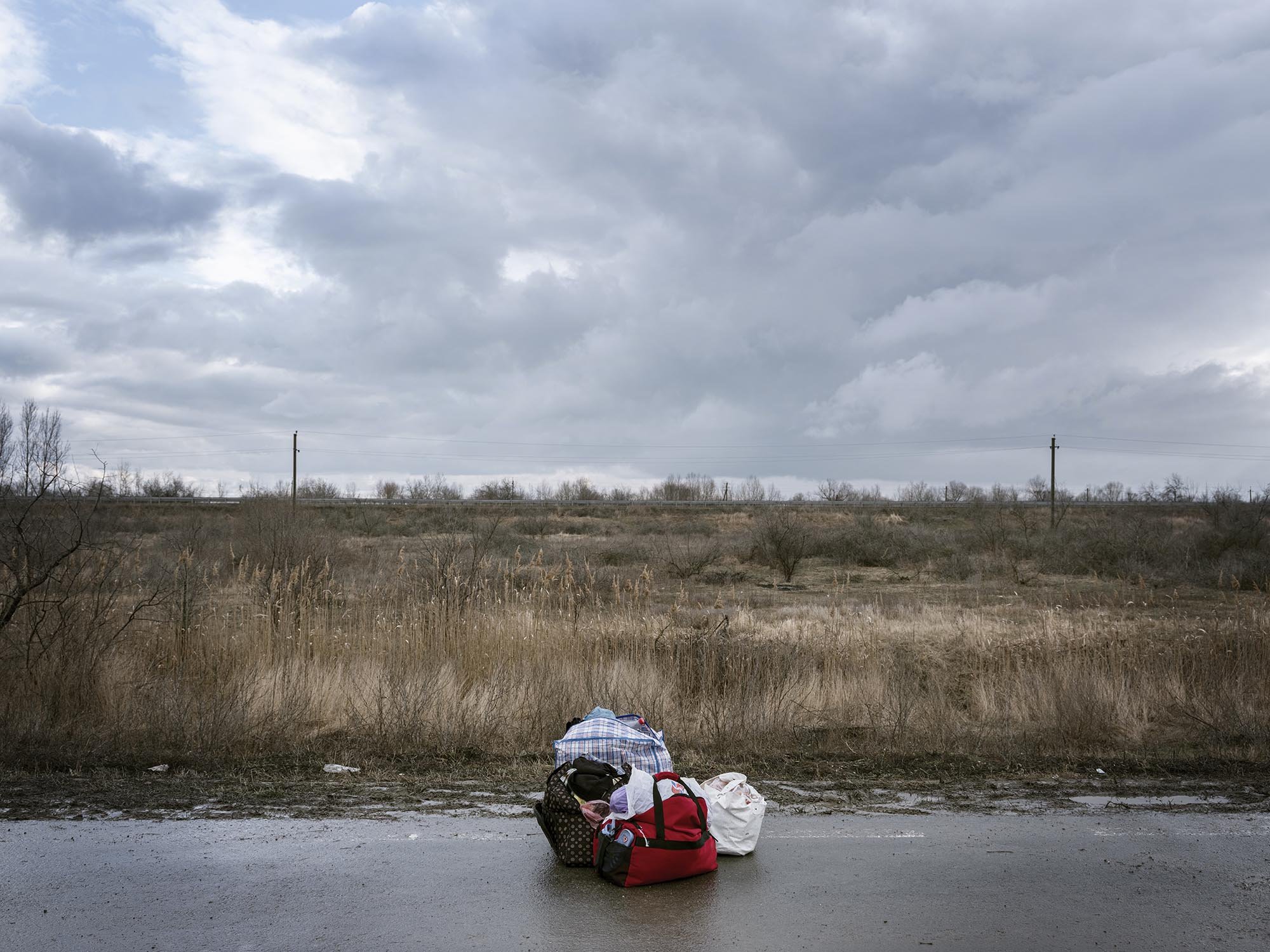
Palanca, Moldova. The border with Ukraine. Palanca it is one of the main entry points for Ukrainians fleeing their country for war.

Chisinau, Moldova. One of the main city parks. Moldova has been trying for years to free itself from the Soviet sphere of influence, especially the new generations who look further to the West. Despite the fear of a possible widening of the conflict, daily life continues. But many are preparing for a possible escape from the country.
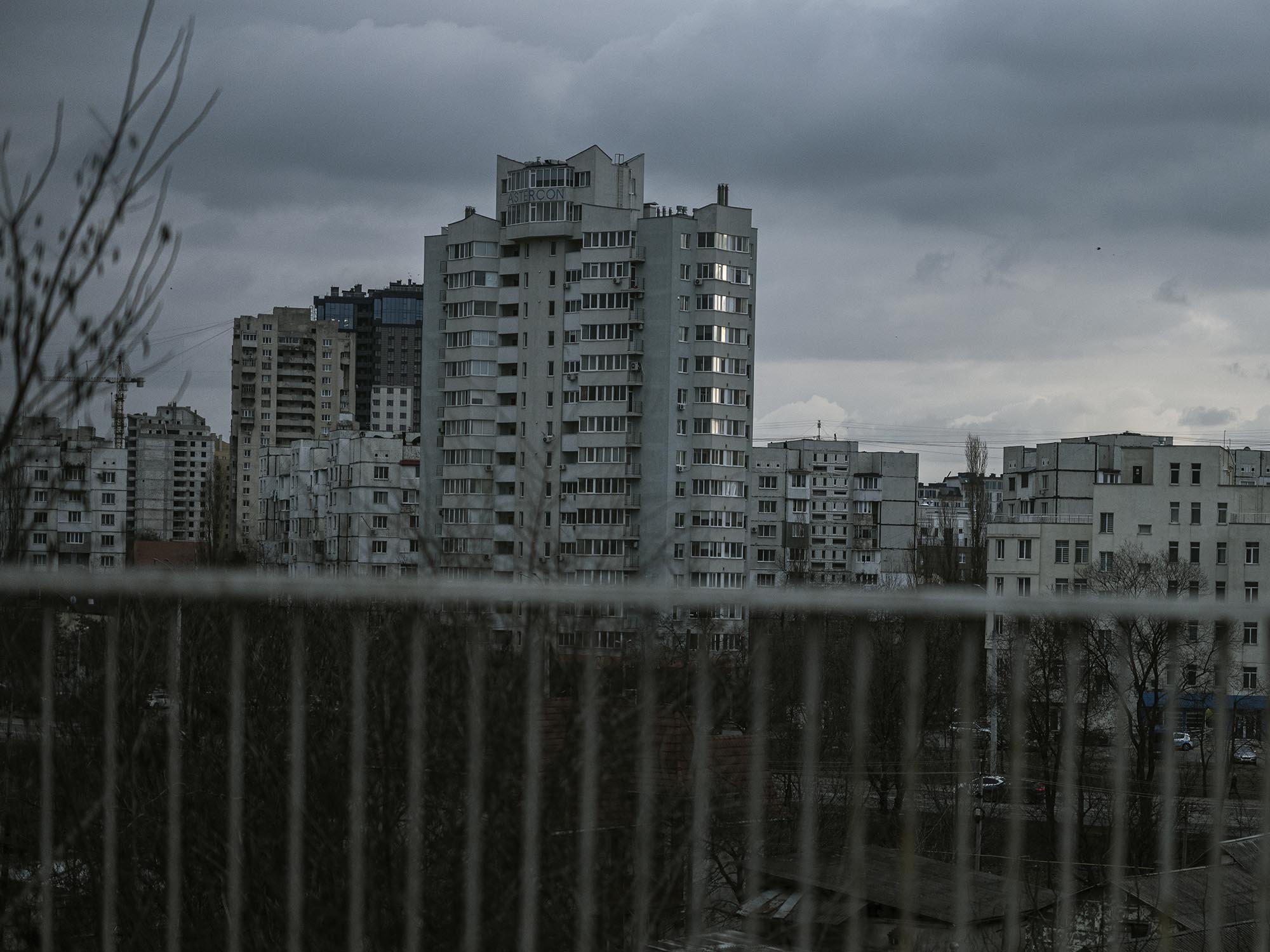
Chisinau, Moldova. City view.

Chisinau, Moldova. The presidential palace.

Bender, Transnistria. Lenin statue, one of the many in the country.

Tiraspol, Transnistria. Alexander Sinika, 55. Veteran of the war with Moldiva in the early 90's.
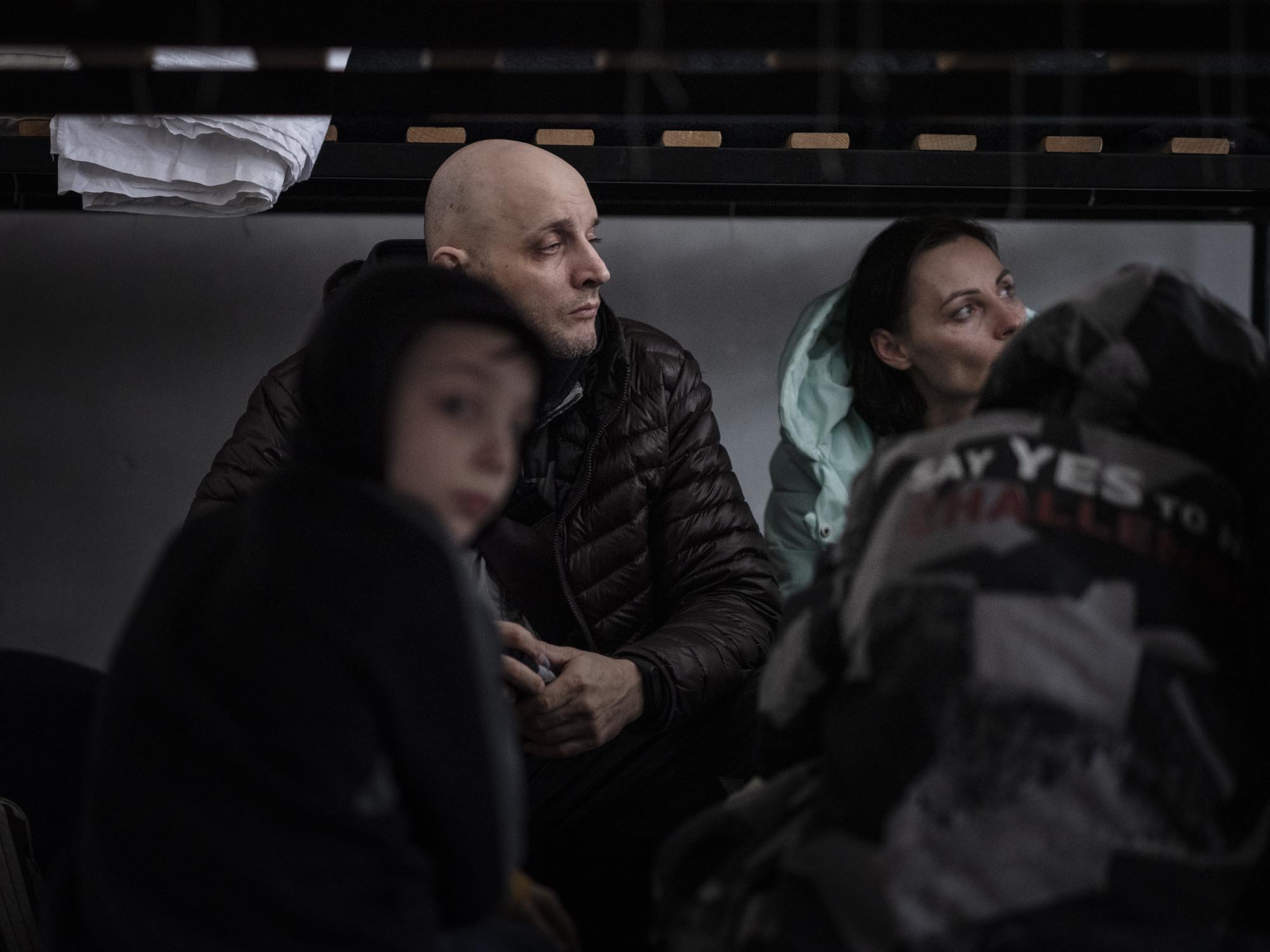
Chisinau, Moldova. Andrei Pahomova, his wife Elenea and his family in the military base now used to host refugees. Despite being old to fight, he was able to leave the country.
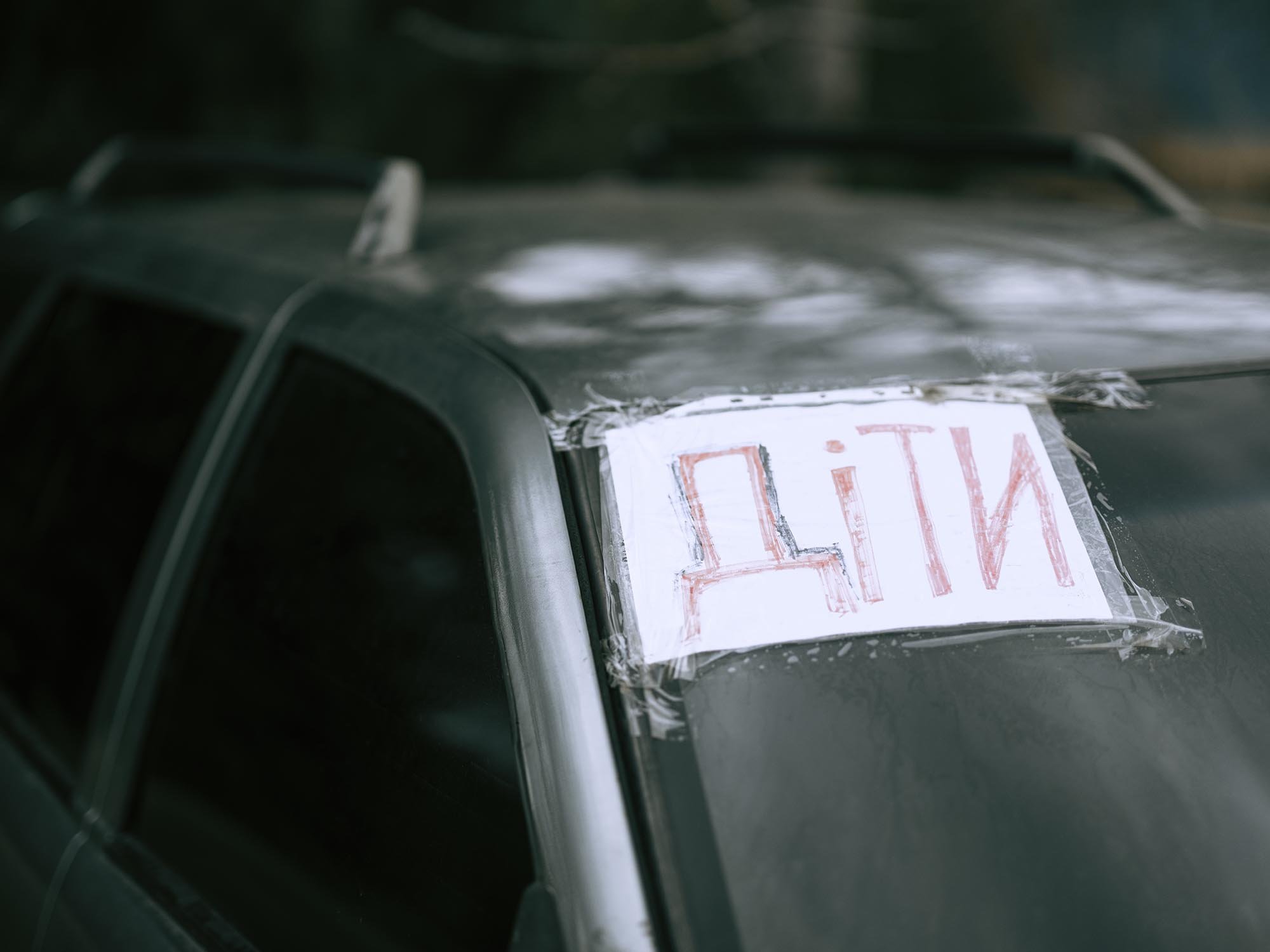
On many refugee cars there is a sign in Russian with the words "Deti", children, in hopes of not being targeted.

Chisinau, Moldova. Inside the military base Brigade 2 Stefan Cel mare, that now host refugees from Ukraine.
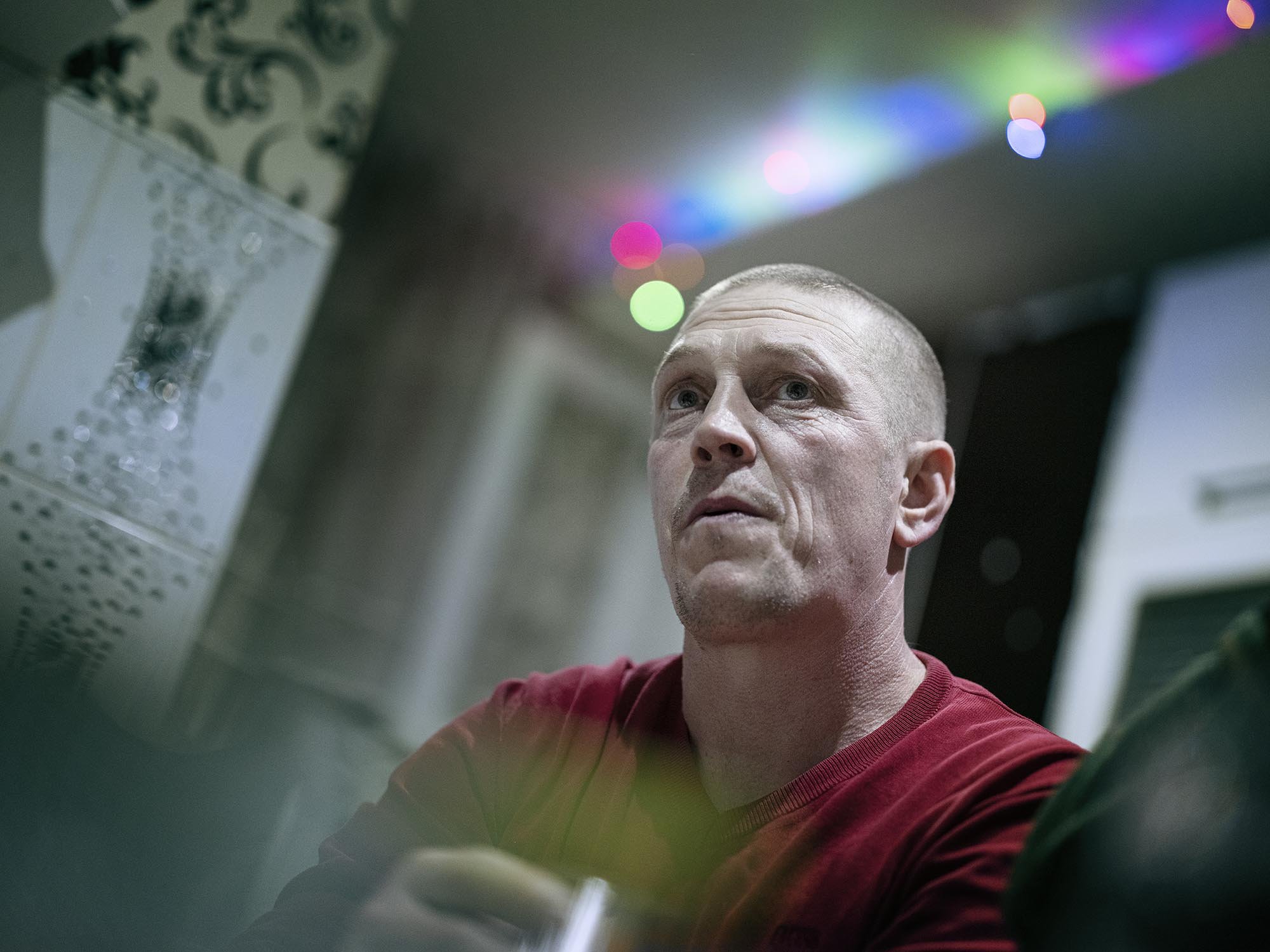
Ursoaia, Moldova. Nicolai decided to open his home to Ukrainian war refugees, hosting Vitaly and Tatiana, in a rural village near the border.
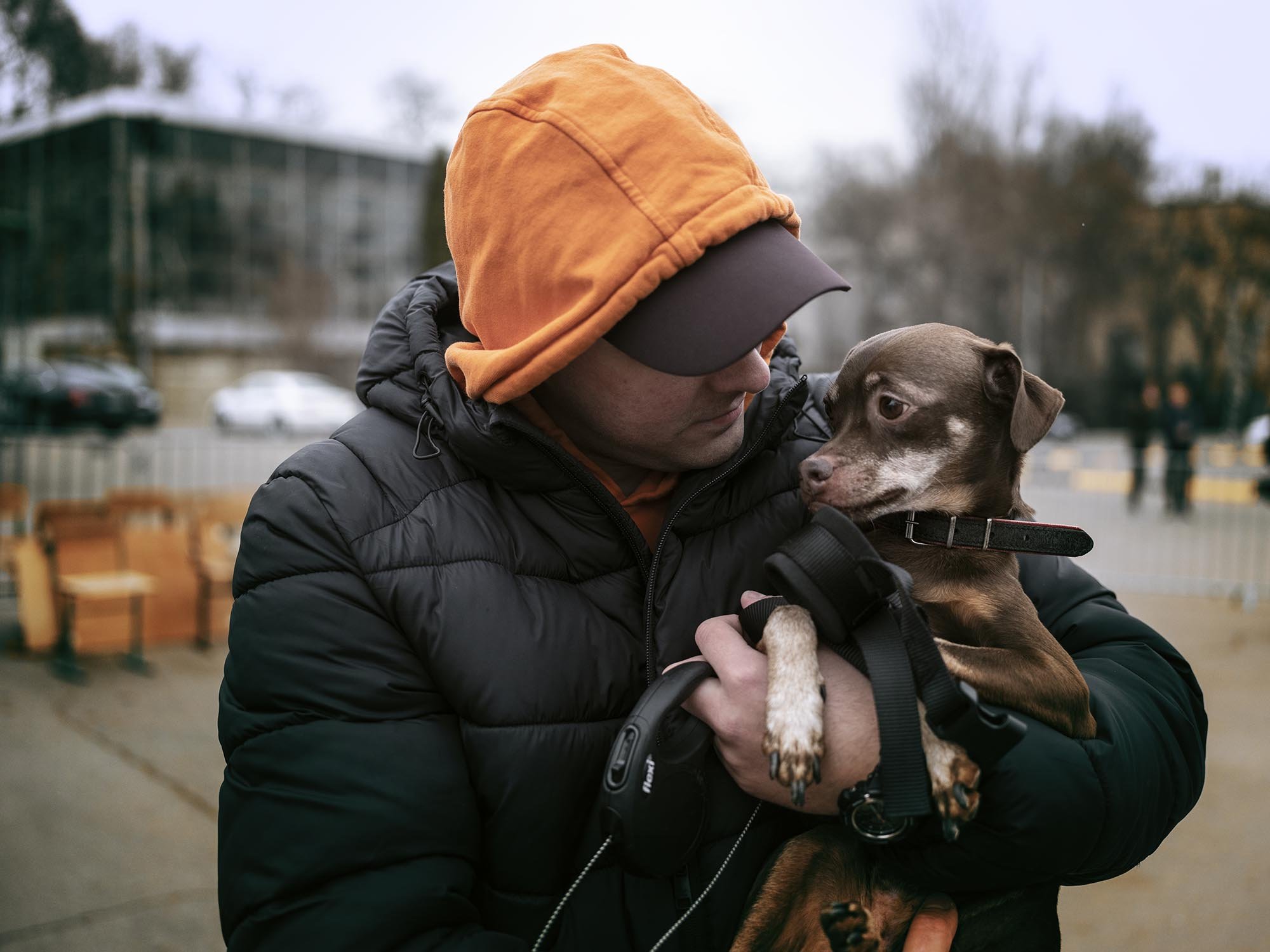
Chisinau, Moldova. A young Ukrainian managed to leave the country despite being of fighting age. Some even paid traffickers $ 2,000 to cross the border.
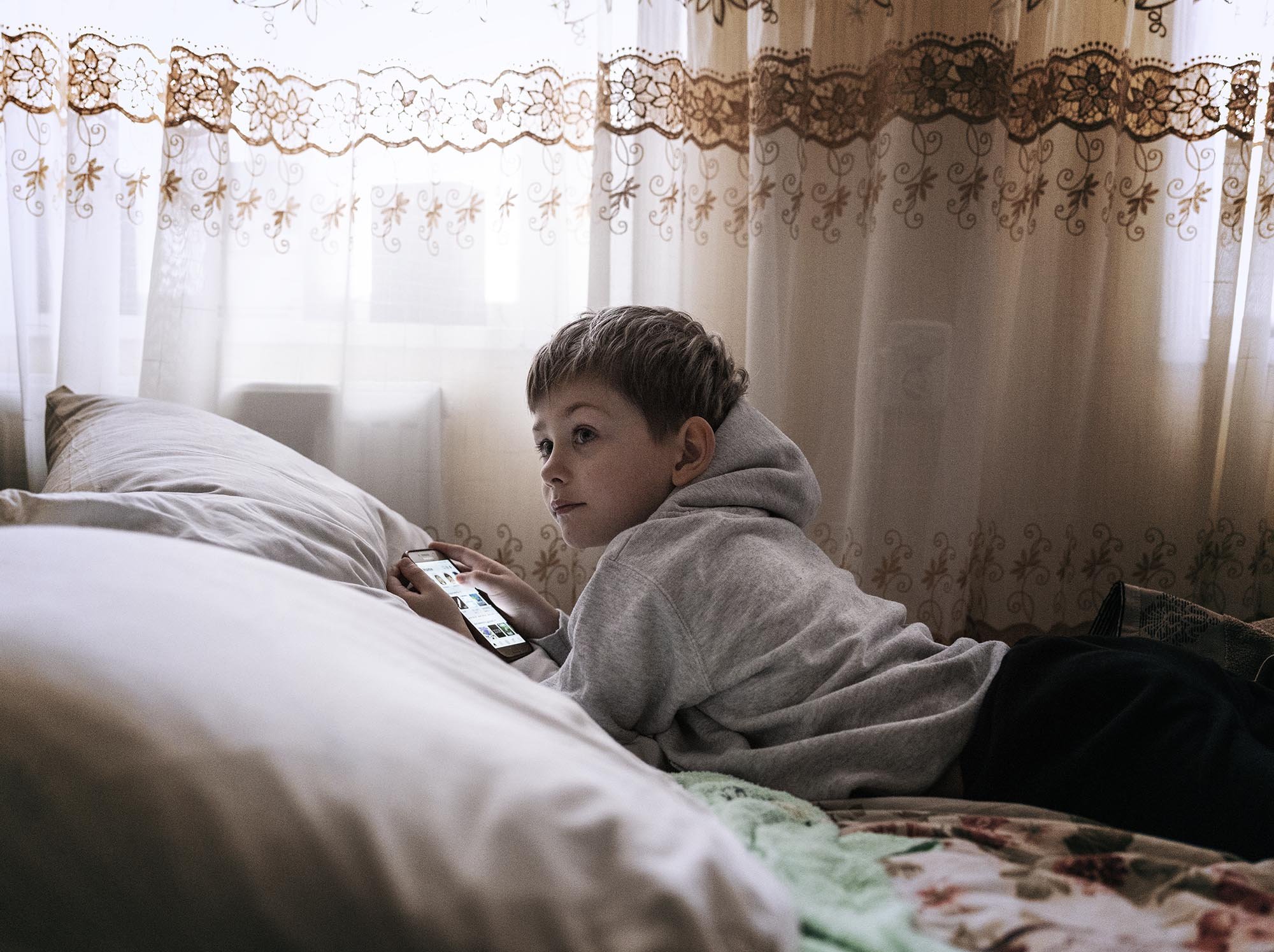
Ursoaia,Moldova. Demien, 9, in the bed of the room where she slept once in Moldava, in Lusmila's home.

Ursoaia, Moldova. Tatiana, who left Odessa at the beginning of the conflict, wife of Vitaly, cry for the excitement to see her friend Ira Ivanitskaia, who has just arrived. They found hospitality in the village of Ursoaia, thanks to Nicolai and Liudmila, who opened their homes for Ukrainian refugees.

Chisinau, Moldova. Inside the military base Brigade 2 Stefan Cel mare, that now host refugees from Ukraine. A young Ukrainian who managed to leave the country tells the dynamics of his escape.
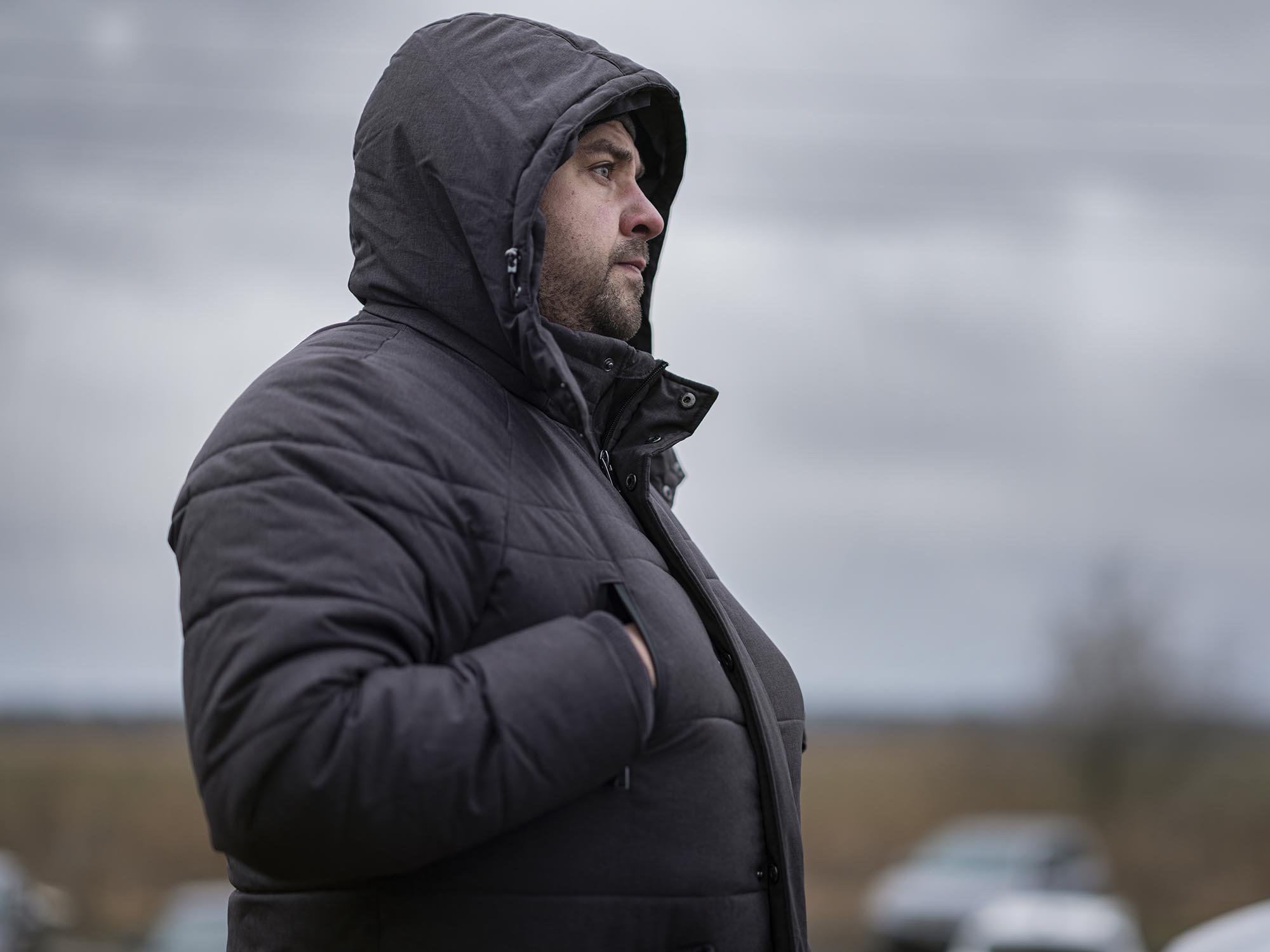
Palanca, Moldova. The border with Ukraine. Vitaly, 38. he left the country a few days earlier, when it was still possible for men his age, at the beginning of the war, finding hospitality in Nicolai's house.

Chisinau, Moldova. Inside the military base Brigade 2 Stefan Cel mare, that now host refugees from Ukraine. The little daughter of Andrei and Elena Pahomova.
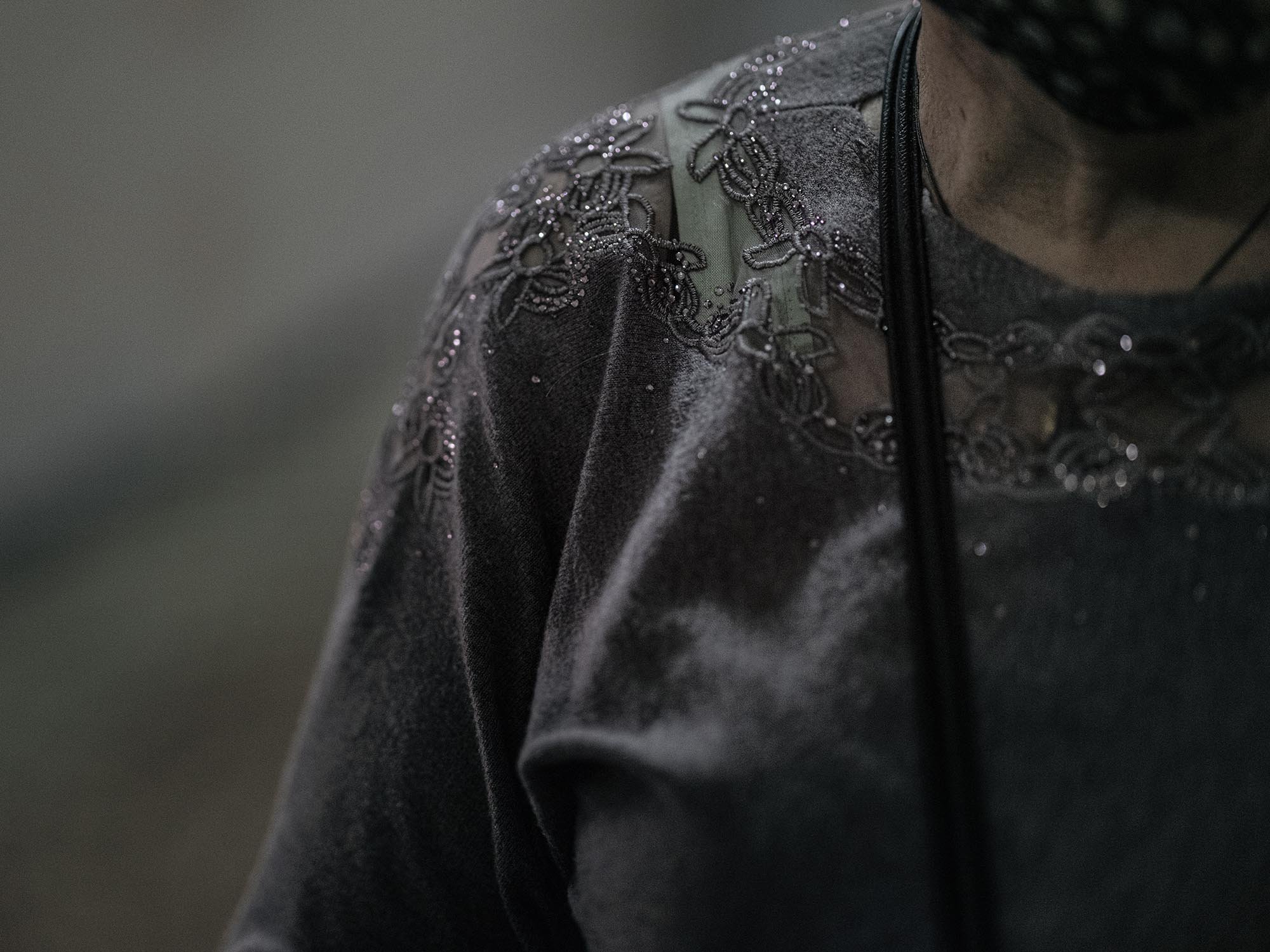
Chisinau, Moldova.svetalana Mihailenko 62. His son is till fightimg in Odessa, but she doesn't judge who left the country and avoid the army.

Chisinau, Moldova. In a modern warkshare space they are giving courses of computer for refugees kids just arrived from Ukraine.
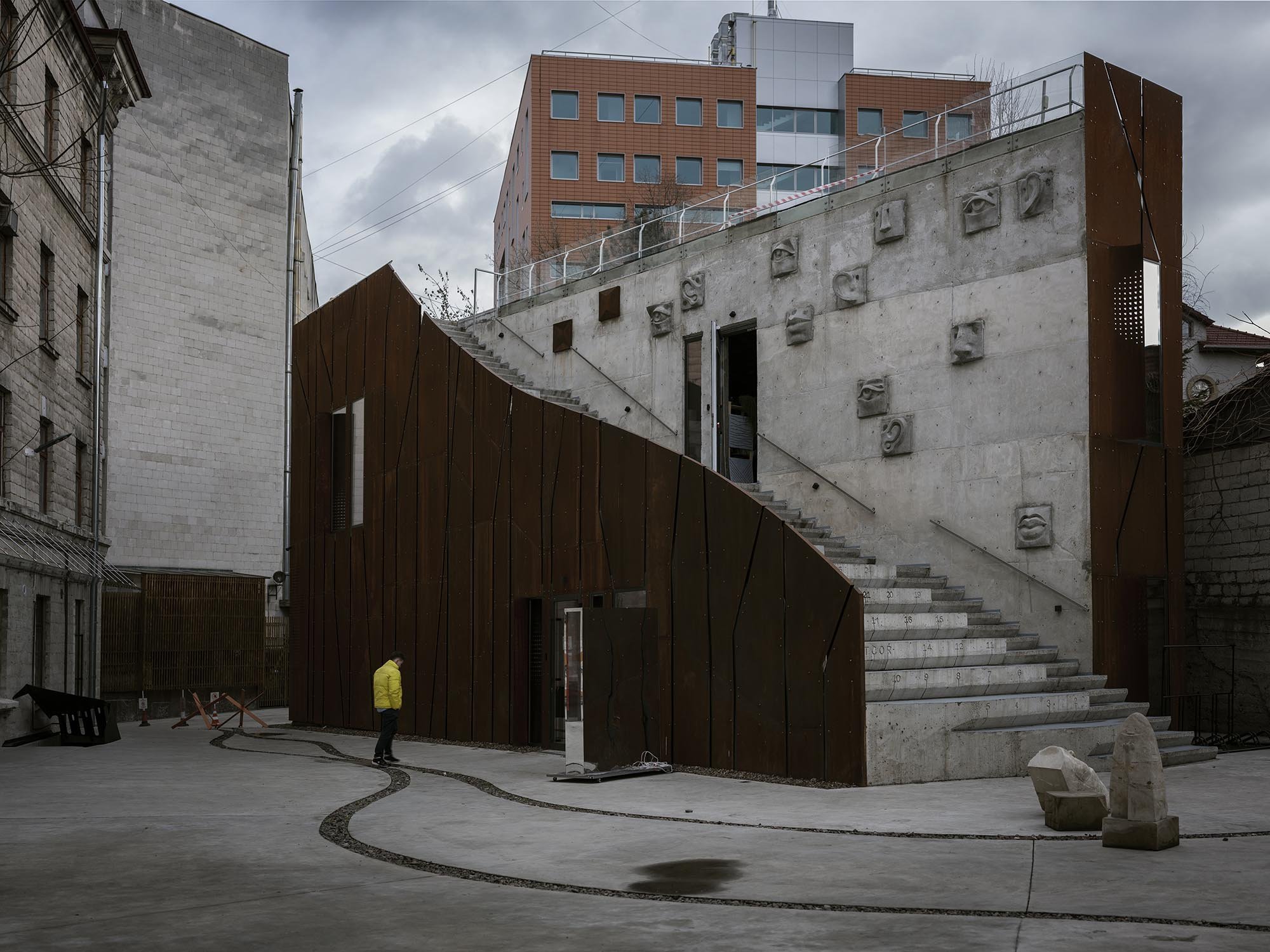
Chisinau. Moldova. Project baked by Us and other western found. A modern and digital workshare space for young and digital oriented companies.
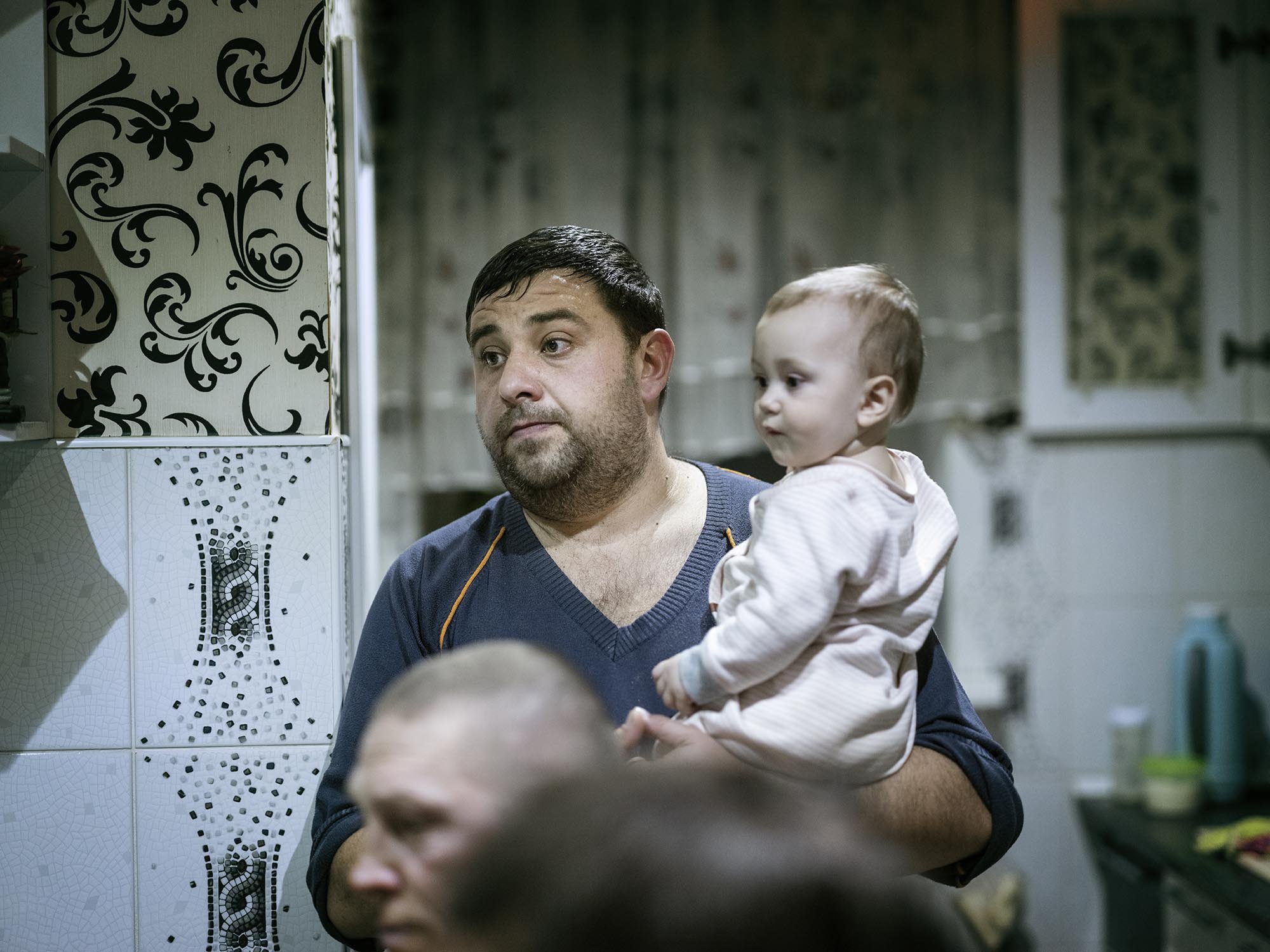
Ursoaia, Moldova. Vitaly with his 8 months son Ivan in Nicolai's kitchen, where his family found hospitality
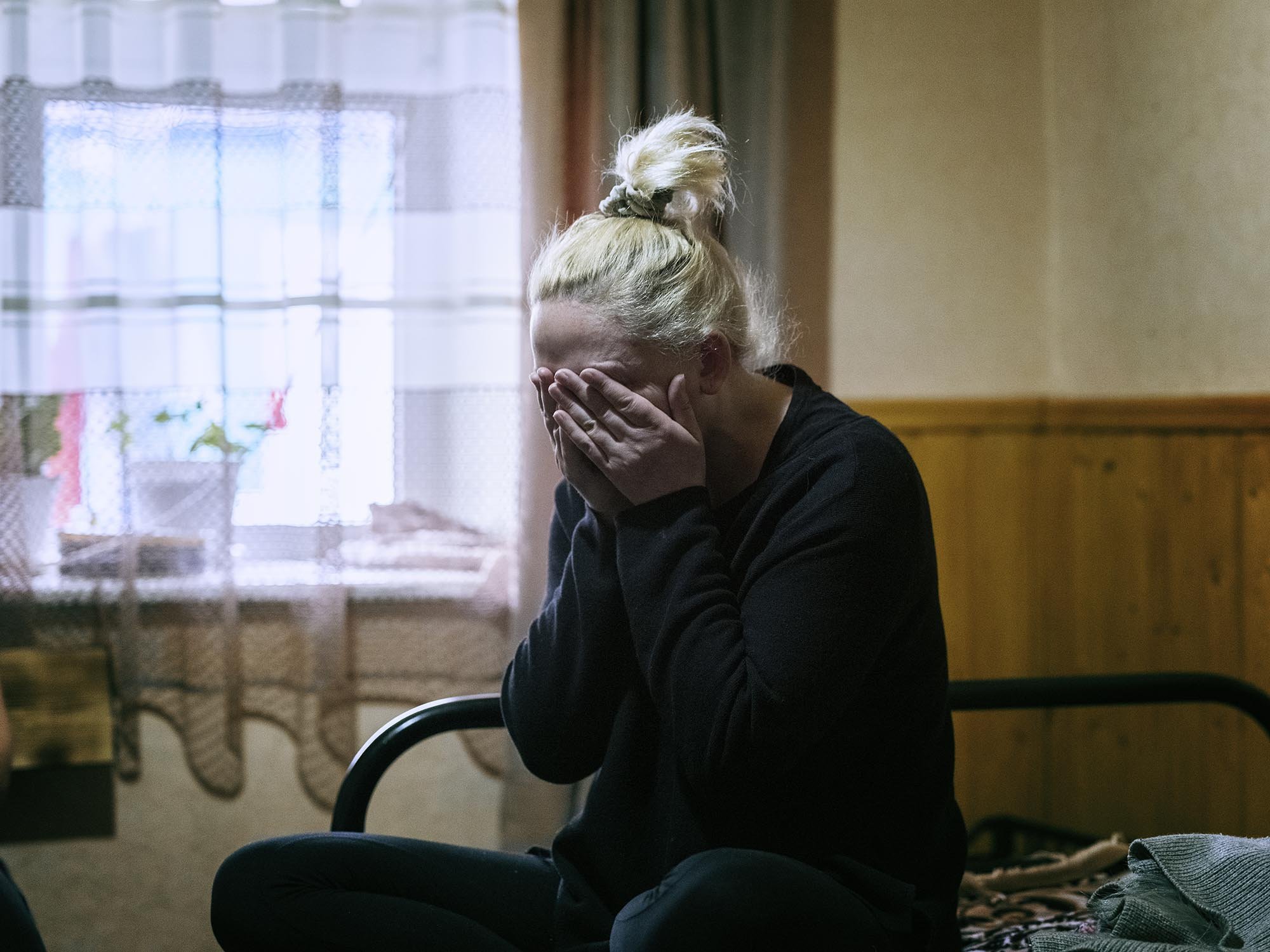
Ursoaia, Moldova. Ira Ivanitska, 46, cries in the house of Ludmila, where she found hospitality.

Moldova. On the west bank of the Dniestr river, the river that divides Moldova and Transnistria.
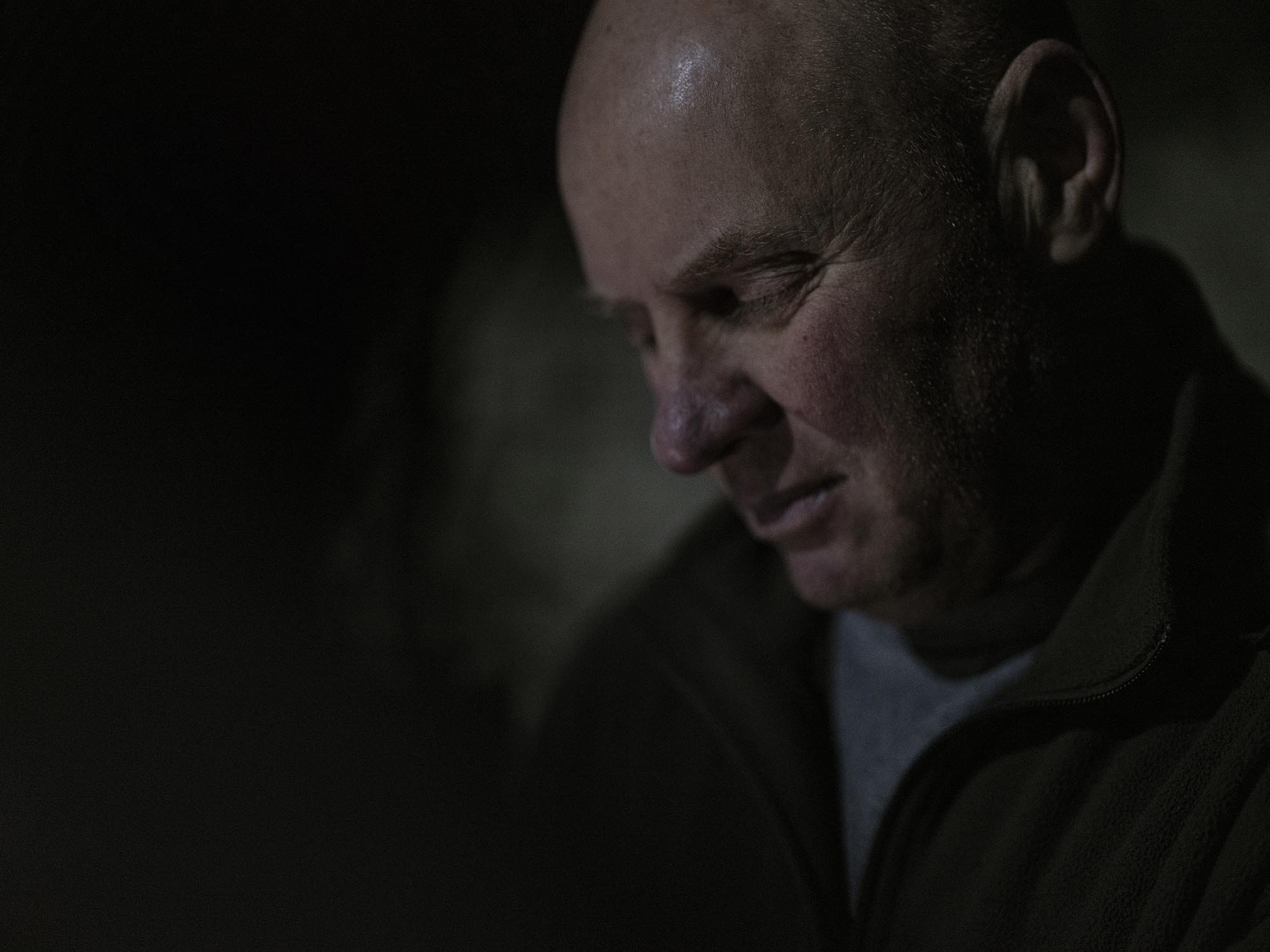
Criuleni, Moldva. Iuri Sclifos 57. Veteran of the soviet war in the early 90's. He is also the president of the veterans' association

Bender, Transnistria. An abandoned but perfectly preserved train station in Bender, in Transnistria, an unrecognized country on the border with Moldova and Ukraine. Used in the past for connections with Moscow, it is now one of the symbols of the country's isolation.
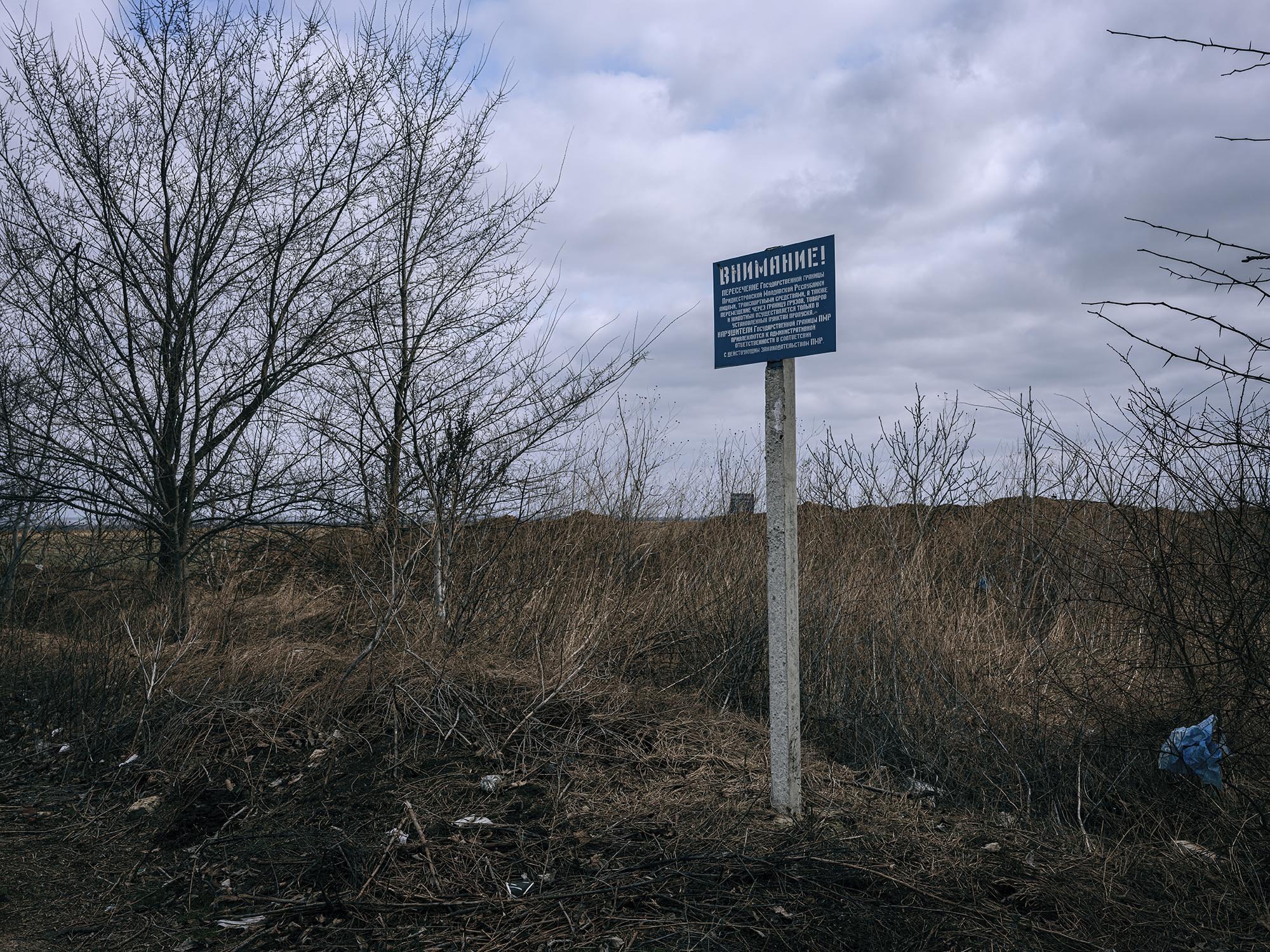
Transnistia Ukraine border. Just a sign marks the line, no checkpoints.
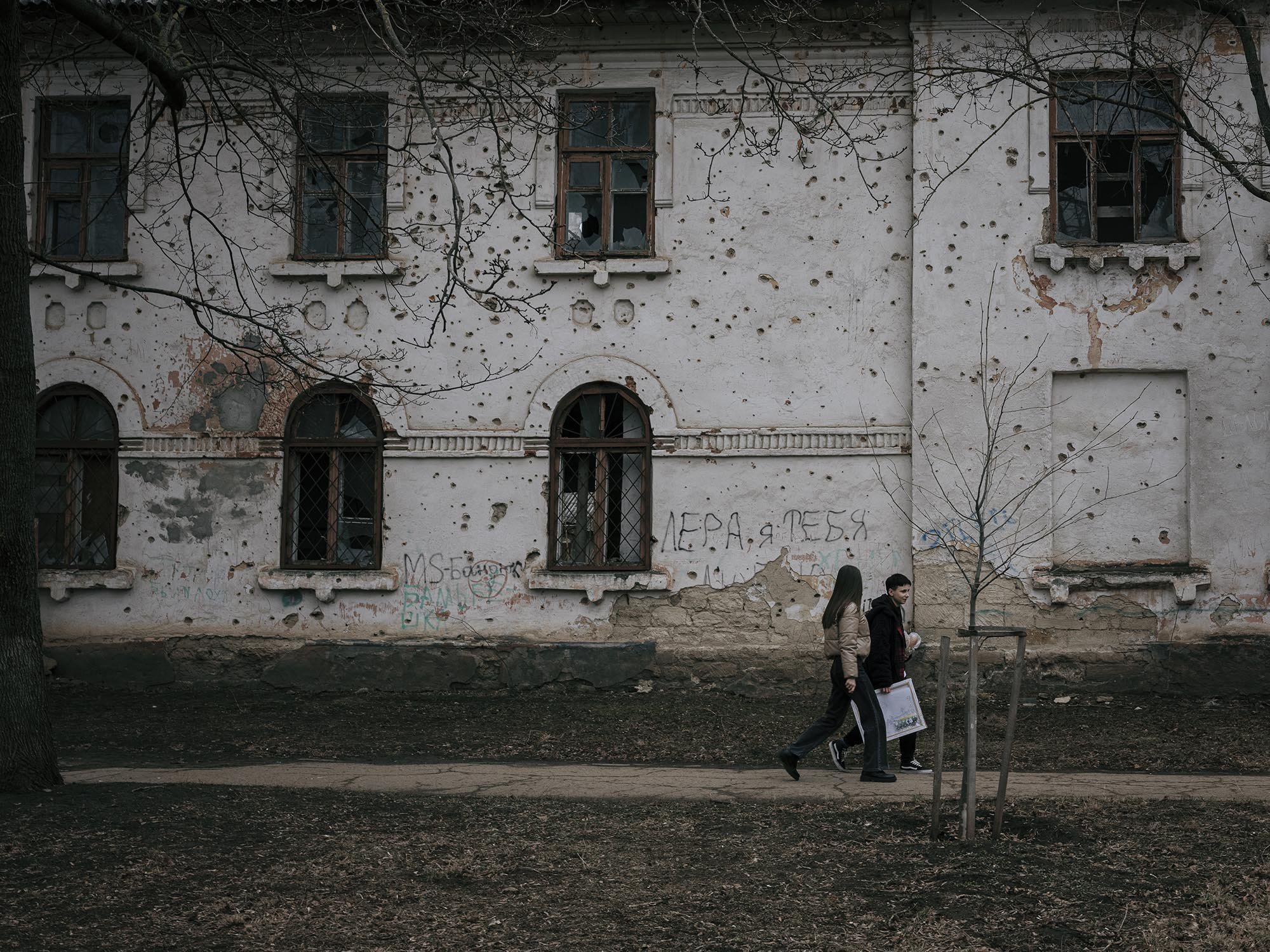
Benedr, Transnistria. Stilla a fews reminder of the early 90's conflict, including this building marked by artillery.
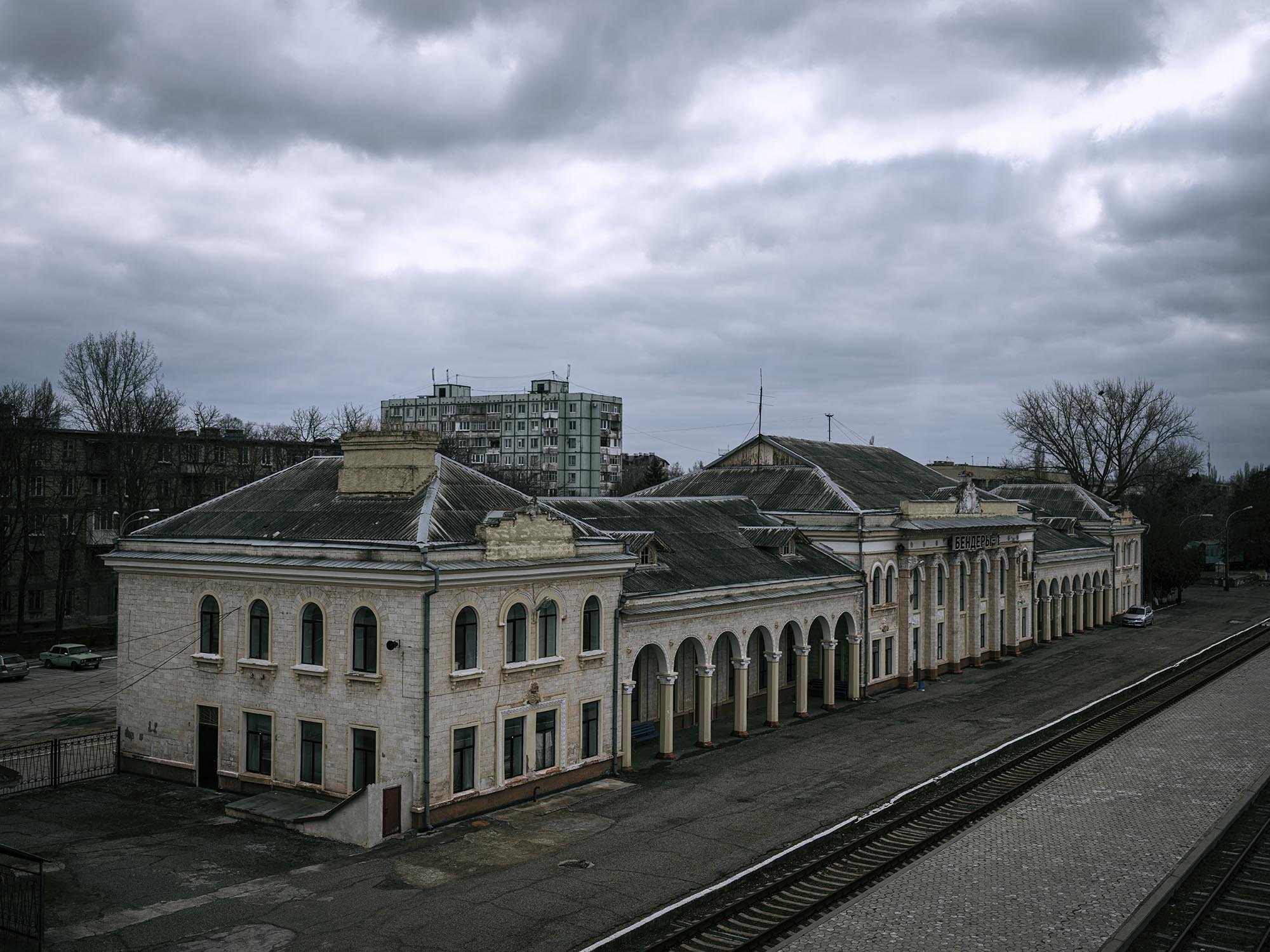
Bender, Transnistria. Abandoned train station from soviet times.
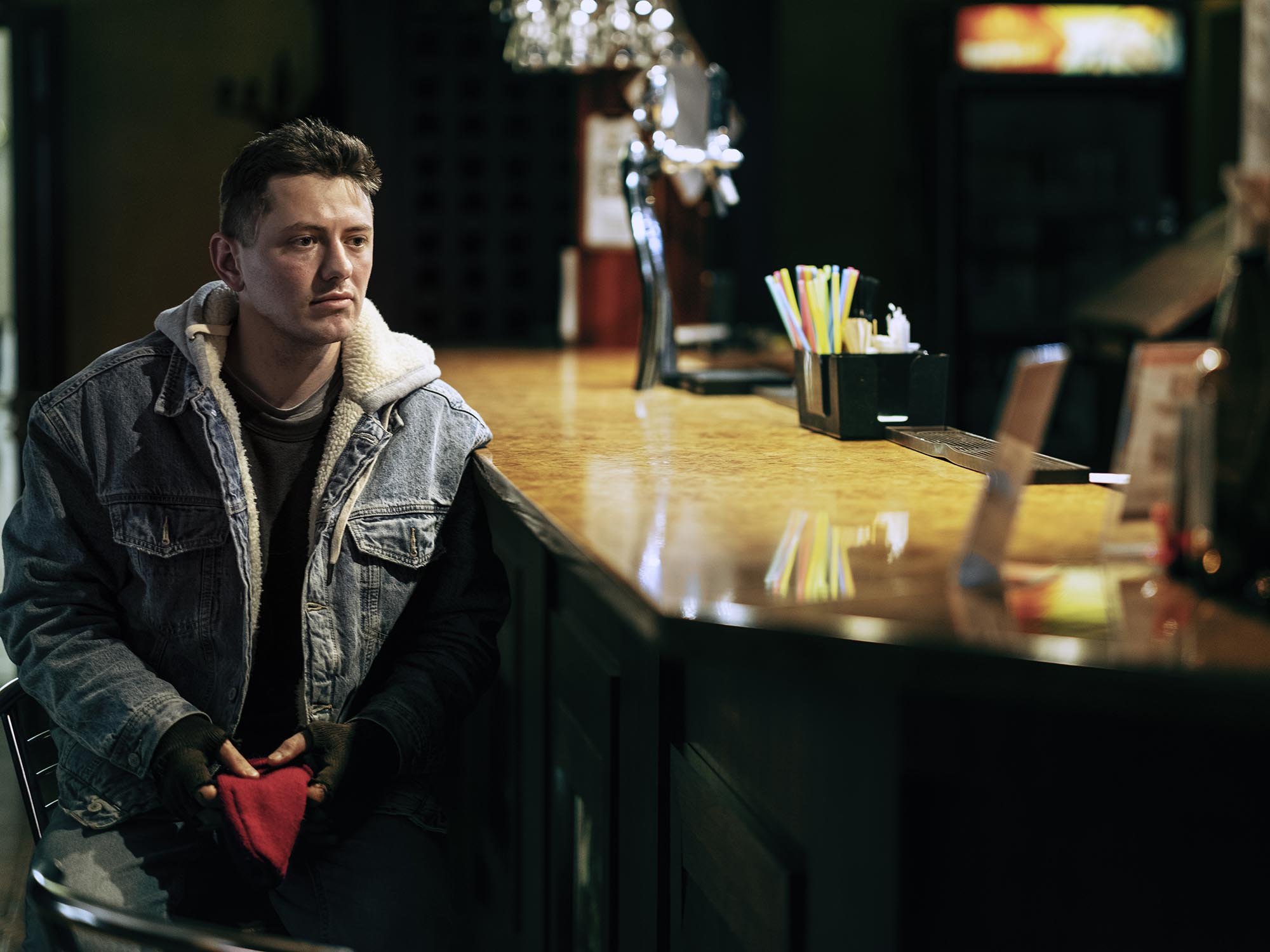
Tiraspol, Transnistria. Andrei Platonov, 29. Artist, he opposes Putin war on Ukraine.

The road to Transnistria. A few meters further on, the border.
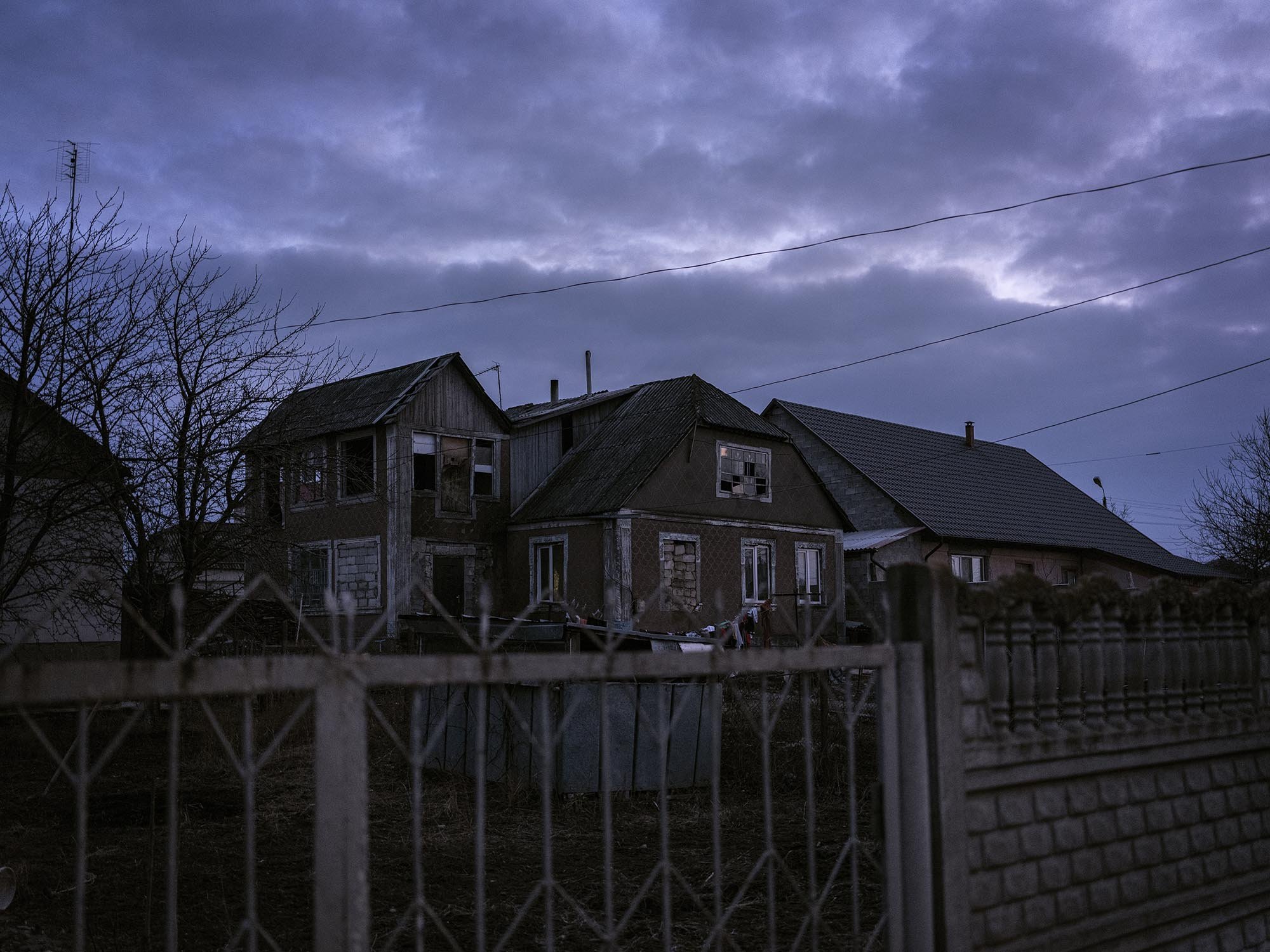
Criuleni, Moldva. One of the houses on the very border with Transnistria, on the Dniester river.
